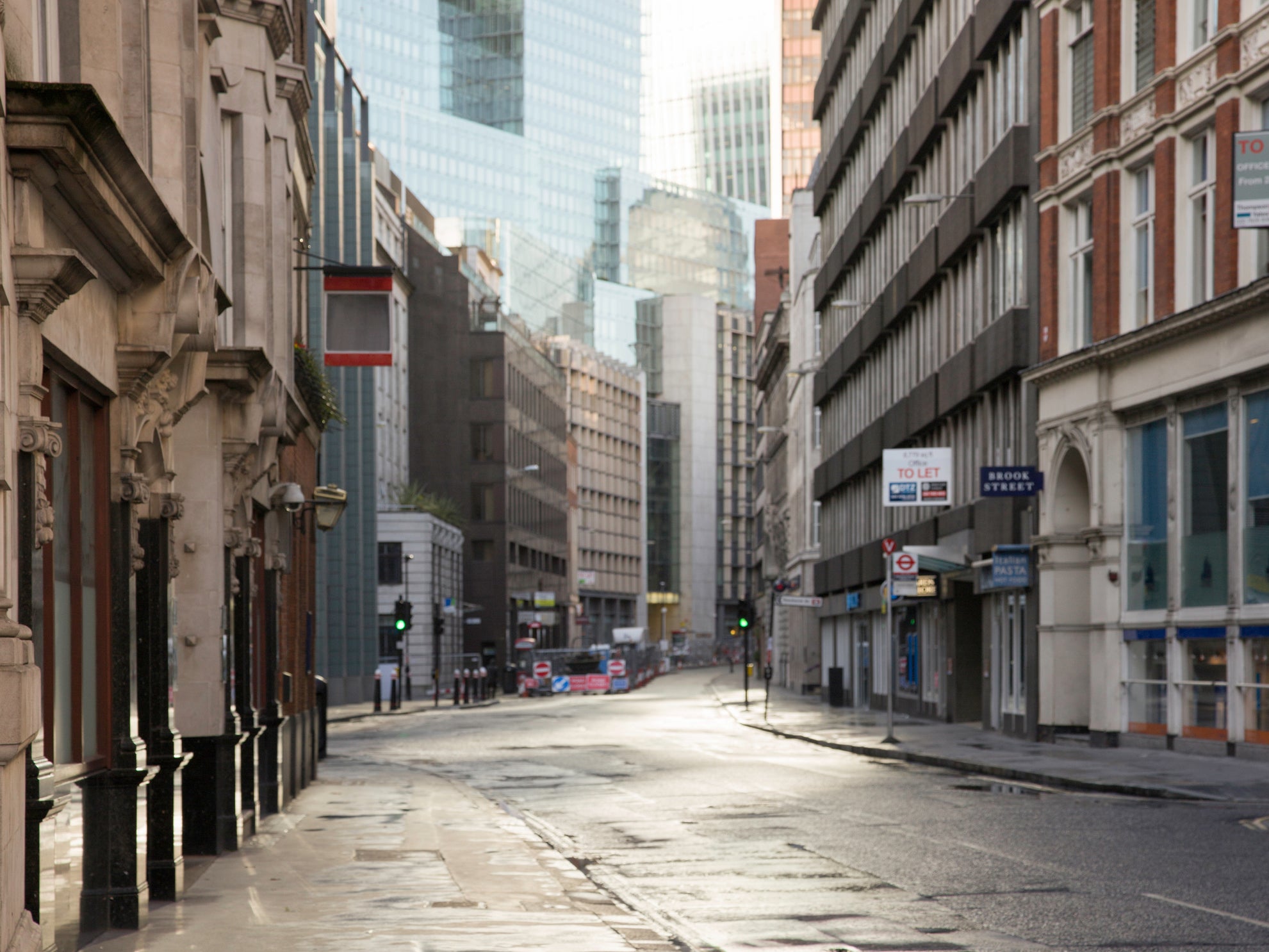Markets are betting on a V-shaped recovery. Is that wise?
The economy’s prospects are yoked to efforts to contain the Covid-19 virus. Recovery from a nasty case typically involves repeated setbacks. We may see a similarly ‘Covid-shaped’ economic revival, writes James Moore


There’s been a whiff of optimism on the markets this week, despite the run of historically bad economic indicators we’ve seen and the continuing rise in the Covid-19 death toll.
The FTSE 100 reached its nadir on 23 March, when it closed at 4,994. A brief rally followed, one that looked very much like a “dead cat bounce”. For those who haven’t come across that typically lurid piece of City terminology, it describes the muted rise in share prices seen at the end of a plunge as the short sellers close out their positions and book their ill gotten gains, while a few speculators start to nip at shares in the hope of taking advantage of cheap prices.
The improvement in the FTSE and other markets in the last couple of days has, however, been driven by a word we’ve not seen much sign of recently: hope. The thinking is that maybe the pandemic is slowing, the lockdowns are working, and if this is true, that maybe the economic stimulus packages enacted by various governments, (including the UK’s) will result in the fabled V-shaped recovery.
That describes a rapid bounce back from out of a deep hole, rather than the U shape you see during a more prolonged downturn or the extremely painful, and much feared, L shape in which the recovery is very slow indeed.
Here’s the problem with bear markets, such as the one we are currently in. As AJ Bell’s Russ Mould evocatively puts it, they tend to be littered with bear traps. The behaviour of Covid-19 is the biggest bear trap of them all.
China reporting no new deaths for the first time since January may be cause for optimism. Italy, the epicentre of the infection in Europe, also bears scrutiny. Mould points out that the MIB-30 index bottomed out on 12 March and is up 19 per cent since.
The problem is that the foundation of the markets’ attempted recovery this week, on the back of these and other positive signs, are about as strong as my Covid-wracked body currently feels.
There is a corps of people shouting “but, but, but the economy” in response to the crisis. The phrase “exit strategy” has started to be discussed in recent days.
Too soon to start talking about it has been the response of the UK government, and I think it’s right, particularly at a time when too many people are thumbing their noses at the restrictions, and the extended Easter bank holiday is looming.
The economy’s fortunes are inextricably linked to those of the battle to contain the virus. Easing the restrictions too early could result in a run of fresh cases, putting everything back.
China will bear watching closely. If it sees fresh outbreaks, the markets’ current hopes for that V shaped recovery may prove to be overcooked. The same will be true if the virus attacks with renewed vigour in the winter.
I rather suspect that the recovery that emerges will ultimately look more like the sort of recovery many Covid sufferers are now experiencing, at least those of us not in the very mild category. It’s slower than you’d hope and tends to feature repeated setbacks.
If I’m right, you could maybe call it a Covid-shaped recovery.
Most investors, and especially the smaller ones, with money in equities would therefore be best off standing firm and looking away, however hard that is.
Join our commenting forum
Join thought-provoking conversations, follow other Independent readers and see their replies
Comments